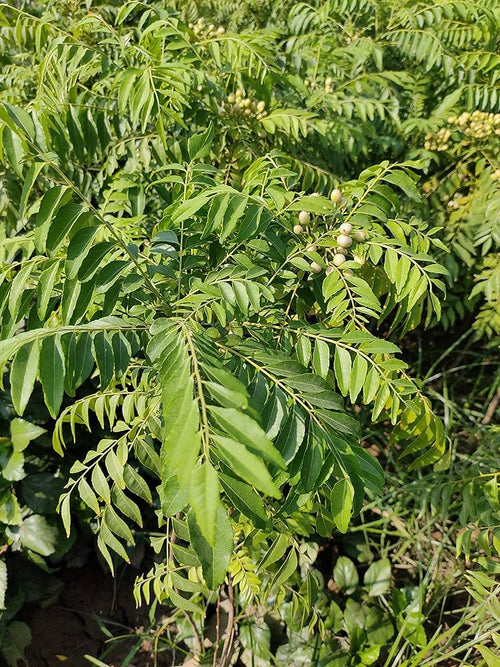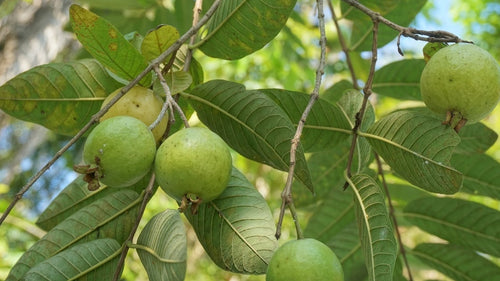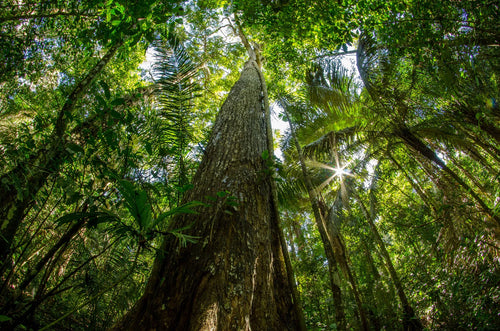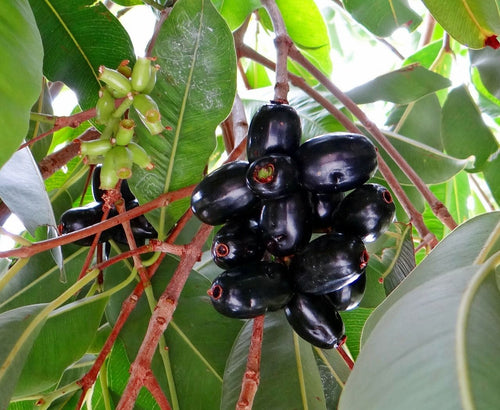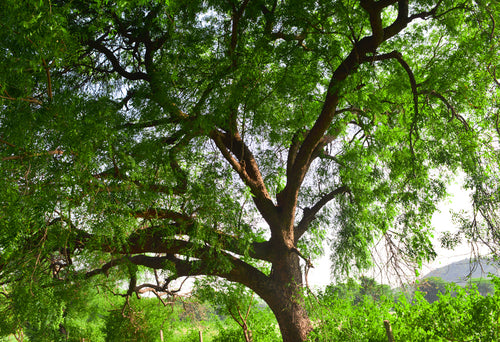Urban Roots, Global Impact: Spencer Stuart’s Environmental Initiative
Spencer Stuart, a global leader in executive search and leadership consulting, has taken a bold step toward environmental stewardship with a tree plan Read more
Project Update 2









Project Update 1



Digital Forest
Forest with 50 Trees planned
Want to plant your tree now?
Plant a Tree @ 299Urban Roots, Global Impact: Spencer Stuart’s Environmental Initiative
Spencer Stuart, a global leader in executive search and leadership consulting, has taken a bold step toward environmental stewardship with a tree plantation initiative rooted in the urban forest concept. In alignment with their mission to authentically embrace sustainability, the initiative reflects the firm’s commitment to understanding and reducing its environmental impact while driving measurable change.
Through the creation of an urban forest, Spencer Stuart aims to support environmental conservation, mitigate climate change, and contribute to healthier, more resilient cities. The plantation features native and climate-resilient tree species thoughtfully selected to improve air quality, enhance biodiversity, and create green spaces that offer long-term ecological and community benefits.
By engaging in this initiative, Spencer Stuart not only cultivates a greener environment but also demonstrates leadership beyond the boardroom, leading by example in building a cleaner and more sustainable future. This green commitment complements their values of responsibility and forward thinking, reinforcing their role as an employer that cares deeply about the well-being of people and the planet.
Project Planning & Execution
No. of trees: 50 Trees
Plantation Location: DRDO Phase 2 Township, Phase 2, C V Raman Nagar, Bengaluru, Karnataka 560093
Plantation Date: 19th July 2025
Name of Species: Guava, Jamun, Mahogany, Bhaunina, Bakul, Karanj, Parijat, Kadamba, Tabubai Rosea, Peeple Tree, Banyan Tree, Millingtonia, Badam, Lagestomia, Plumeria, Arjuna, Cannon Ball, Rudraksha, Lucky, Adsoge, Neem, Ranjel, Spathodia.
Species Selection & Its Benefits:
The species selected for Spencer Stuart’s urban forestry initiative have been carefully chosen to align with the organization’s mission of authentic sustainability, while fostering biodiversity, climate resilience, and environmental well-being in urban spaces. The plantation includes a thoughtfully curated mix of native, ornamental, and ecologically beneficial species such as Guava, Jamun, Mahogany, Bhaunina, Bakul, Karanj, Parijat, Kadamba, Tabubai Rosea, Peepal Tree, Banyan Tree, Millingtonia, Badam, Lagestomia, Plumeria, Arjuna, Cannon Ball, Rudraksha, Lucky, Adsoge, Neem, Ranjel, and Spathodia.
Each species has been selected for its unique ecological role and social value. Fruit-bearing trees like Guava and Jamun attract birds and support food webs, while broad-canopy trees such as Mahogany, Kadamba, and Millingtonia help mitigate the urban heat island effect by providing ample shade. Sacred and culturally revered trees like Peepal, Banyan, Rudraksha, and Arjuna foster heritage preservation and spiritual connection in city life. Ornamentals like Tabubai Rosea, Lagestomia, Plumeria, and Spathodia enrich the landscape with color and pollinator support. Medicinal and air-purifying species like Neem, Karanj, and Parijat promote health and environmental balance. Together, these species contribute to soil enrichment, carbon sequestration, improved air quality, and a vibrant, biodiverse urban ecosystem perfectly reflecting Spencer Stuart’s commitment to sustainable leadership.
Beneficiaries Details
-
Target Population: Employees, stakeholders, and local community members of Bengaluru
-
Age Group: All age groups focus on adults to seniors
-
Gender: Inclusive of all genders
- Social & Economic Status: Open to all social and economic backgrounds, emphasizing community involvement
Planting Methodology and Its Advantages
Urban Forest: An urban forest is a network of trees, shrubs, and vegetation strategically planted in urban areas to enhance biodiversity, improve air quality, reduce the urban heat island effect, and provide green spaces for community well-being. It helps mitigate climate change by absorbing carbon dioxide, promotes mental health through accessible green areas, and supports local wildlife by creating habitats. Urban forests play a vital role in building resilient, sustainable cities that benefit both the environment and the people who live in them.
Advantages of Urban Forest
-
Climate Regulation and Cooling Effect: Urban forests help mitigate the urban heat island effect by providing shade and cooling through transpiration, lowering temperatures in cities, reducing the need for air conditioning, and conserving energy.
-
Improved Air Quality: Trees absorb pollutants such as carbon dioxide, nitrogen oxides, and particulate matter, leading to improved air quality and a reduced risk of respiratory illnesses in urban areas.
-
Stormwater Management and Flood Prevention: Urban forests improve the soil’s ability to absorb and retain water, reducing stormwater runoff, preventing flooding, and promoting groundwater recharge, thus helping manage water resources efficiently.
-
Soil Erosion Control: The deep root systems of trees prevent soil erosion, especially in areas with heavy rainfall or steep slopes, stabilizing the land and reducing soil loss in urban environments.
-
Aesthetic and Recreational Value: The transformation of unused spaces into green zones adds aesthetic value to the area and provides employees and local communities with recreational spaces, making the workplace more enjoyable.
-
Enhanced Community Engagement and Well-being: Urban forests provide accessible green spaces where communities can engage in recreational activities, improving mental health, reducing stress, and fostering a sense of environmental stewardship among residents and employees.
-
Increased Property Value: Properties located near urban forests or green spaces tend to have higher market values, benefiting local property owners and increasing the overall appeal and livability of the area.
- Noise Reduction: Urban forests act as natural sound barriers, reducing noise pollution and creating quieter, more peaceful surroundings.
Activities During Tree Plantation
The tree plantation drive at DRDO Phase 2 Township, Phase 2, C V Raman Nagar, Bengaluru, was marked by active employee participation, fostering a strong sense of environmental responsibility and teamwork. The event was carefully structured to ensure smooth execution and meaningful engagement.
In preparation for the plantation, the site was readied with pre-dug pits, and saplings were carefully placed and positioned for optimal growth. Employees actively took part in planting native, ornamental, and fruit-bearing trees, deepening their understanding of sustainable practices and the ecological benefits of urban greening. Their hands-on involvement created a more immersive and fulfilling experience.
The plantation drive concluded with a reflection session, allowing participants to appreciate their contributions towards a greener environment. The initiative reinforced Spencer Stuart’s commitment to sustainability, employee engagement, and corporate environmental responsibility.
Conclusion Elements
Impact
Direct Impact
| Parameters | Values | References |
| No. of Trees Planted | 50 | |
| Green Cover (Acres) | 0.001 | |
| Carbon Sequestration Potential (KG) | 20 |
Small to medium-sized trees can sequester around 10–48 kilograms (22–106 pounds) of CO₂ annually. https://growbilliontrees.com/blogs/knowledge/how-much-co2-can-one-tree-absorb |
| Carbon Sequestration by 50 mature trees ( Tons/year) | 1 Tons | No. of Trees x Carbon Sequestration by 1 mature trees per year |
| Carbon Credit Equivalent | 1 | One carbon credit is equivalent to one tonne of carbon dioxide or the equivalent amount of another greenhouse gas. |
| Carbon Footprint of an avg Indian Citizen (Tons/Year) | 1.8 | https://www.iea.org/countries/india/emissions |
| Offsets Annual Carbon Footprint of (Adults) | 1 | Carbon offset by 50 mature trees per year / Carbon Footprint of an avg Indian Citizen per year |
(This impact analysis is forward-looking (An urban-forest project matures in 3-5 years)
Indirect Impact
Community Impact
-
Improved Public Health: By improving air quality and reducing urban heat, the project indirectly contributes to better public health. The presence of green spaces encourages outdoor activities, which can reduce stress levels, promote mental well-being, and decrease the incidence of respiratory diseases.
-
Environmental Awareness: Involving communities in urban forestry raises awareness about environmental conservation and promotes sustainable practices in daily life.
-
Employee Morale: The initiative fostered a sense of pride and connection among employees, strengthening team bonds and their alignment with the company’s values.
-
Inspiration for Change: By showcasing the potential of urban forestry, the project has encouraged other organizations and local communities to undertake similar initiatives.
- Cultural Shift: The initiative instilled a mindset of sustainability and environmental care among participants, creating advocates for green practices in their personal and professional lives.
Environmental Impact
-
Carbon Sequestration: The trees planted through Spencer Stuart's urban forestry initiative absorb carbon dioxide, acting as carbon sinks and helping mitigate climate change by reducing greenhouse gas emissions.
-
Soil Health Improvement: The tree planting initiative enhances soil health by enriching it with organic matter, improving soil fertility and structure, which supports the growth of surrounding vegetation.
-
Erosion Prevention: Tree roots help stabilize the soil in urban areas, preventing erosion caused by wind and water, while safeguarding nearby properties and infrastructure from potential damage.
-
Biodiversity Conservation: By creating green spaces, the initiative supports local biodiversity, providing habitats for various species, pollinators, and beneficial insects, and enhancing the ecological balance in urban areas.
-
Water Cycle Regulation: The urban forestry project helps regulate the water cycle by improving water retention in the soil, recharging groundwater levels, and reducing surface runoff, leading to a more balanced and sustainable urban environment.
-
Microclimate Regulation: Trees planted through this initiative moderate temperature extremes, reduce wind speeds, and increase humidity, creating a favorable microclimate for both the community and the urban ecosystem.
Achievements
SDG Goals Achieved through Urban Forestry
-
SDG 3: Good Health and Well-Being: Spencer Stuart's urban forestry initiative improves air quality and introduces green spaces that support physical and mental well-being. These natural environments help reduce stress, encourage outdoor activity, and foster healthier lifestyles in urban settings.
-
SDG 6: Clean Water and Sanitation: Through tree planting, Spencer Stuart promotes water conservation by aiding groundwater recharge, reducing runoff, and enhancing soil moisture retention, contributing to sustainable urban water systems.
-
SDG 7: Affordable and Clean Energy: By reducing the urban heat island effect, the plantation helps moderate city temperatures and decrease dependence on energy-intensive cooling systems, thus promoting energy efficiency and sustainability.
-
SDG 8: Decent Work and Economic Growth: The initiative creates green jobs in nursery management, plantation, and ecosystem maintenance, supporting local livelihoods and advancing the green economy.
-
SDG 9: Industry, Innovation, and Infrastructure: Spencer Stuart incorporates sustainable green practices into urban infrastructure, showcasing innovative approaches that integrate technology with environmental resilience.
-
SDG 10: Reduced Inequalities: The initiative is inclusive, involving employees from all backgrounds in environmental action. By developing accessible green zones, Spencer Stuart ensures shared environmental and health benefits across communities.
-
SDG 11: Sustainable Cities and Communities: By increasing green cover and enhancing biodiversity in dense urban areas, Spencer Stuart contributes to building sustainable, resilient, and livable cities.
-
SDG 12: Responsible Consumption and Production: Spencer Stuart's eco-initiatives reflect a commitment to sustainable practices, emphasising efficient use of resources and long-term ecological responsibility.
-
SDG 13: Climate Action: The planted trees help sequester carbon dioxide, reduce emissions, and buffer against climate change impacts, actively supporting global climate goals.
-
SDG 15: Life on Land: By restoring green spaces with native and fruit-bearing trees, the initiative strengthens biodiversity, supports wildlife, and contributes to a thriving urban ecosystem.
-
SDG 16: Peace, Justice, and Strong Institutions: By fostering inclusive decision-making and community-led governance, Spencer Stuart strengthens local environmental stewardship, ensuring transparency and collaboration for sustainable urban development.
-
SDG 17: Partnerships for the Goals: The initiative thrives on collaboration with local communities, environmental organizations, and partners such as Grow Billion Trees. Spencer Stuart strengthens environmental partnerships to drive impactful urban sustainability and afforestation efforts. future.
ESG Achieved through Urban Forest:
-
Environmental Impact: Spencer Stuart's urban forestry initiative makes a meaningful contribution to environmental sustainability. By planting a diverse mix of native and beneficial tree species, the company enhances local biodiversity, supports pollinators and wildlife, and strengthens urban ecosystems. These trees act as natural carbon sinks, helping to reduce atmospheric CO₂ levels and combat climate change. Additionally, the plantation improves climate resilience by regulating ambient temperatures, reducing the urban heat island effect, improving air quality, and increasing groundwater recharge. This forward-looking effort supports long-term ecological balance and a healthier environment for future generations.
-
Social Impact: Spencer Stuart's urban forestry initiative fosters social responsibility and community well-being by involving employees and local stakeholders in environmental stewardship. Through active participation in tree planting and awareness efforts, the initiative cultivates a deeper connection with nature and promotes collective action for sustainability. The creation of green spaces improves air quality, encourages outdoor activity, and contributes to better mental and physical health. Additionally, the project supports green jobs through sapling plantation and ongoing maintenance, while promoting inclusivity by ensuring access to cleaner, greener environments for all communities, including underserved groups. This initiative helps build a more resilient, equitable, and environmentally conscious society.
-
Governance Impact: Spencer Stuart showcases strong environmental leadership and responsible governance through its urban forestry initiative. By integrating sustainability into its core CSR strategy, the company promotes transparency and accountability in project planning, execution, and reporting. Collaborating with environmental organizations and local communities, Spencer Stuart ensures that its afforestation efforts are inclusive, impactful, and aligned with broader ecological goals. This governance approach not only supports environmental and social outcomes but also reflects the company’s long-term vision for sustainable growth and ethical corporate responsibility.
Building Communities
One of the most impactful outcomes of Spencer Stuart's urban forestry initiative was the sense of unity and collaboration it cultivated. By involving employees, local communities, and volunteers, the project became a collective mission to create sustainable urban green spaces, fostering a shared commitment to a greener future.
-
Empowering Communities: Participants became active contributors, gaining knowledge about urban forestry practices and taking ownership of the initiative. This empowerment strengthened their connection to the environment and reinforced their role as environmental stewards.
-
Fostering Partnerships: The project brought together diverse stakeholders, including Spencer Stuart, Grow Billion Trees, and local communities, highlighting the value of collaboration in achieving environmental and social goals.
-
Creating a Ripple Effect: As communities experienced the benefits of urban forestry, their enthusiasm inspired others to adopt similar practices, amplifying the initiative's positive impact across the region.
This initiative demonstrates that environmental sustainability thrives when rooted in collective effort. It’s not just about planting trees; it’s about planting hope, collaboration, and a shared vision for a healthier and greener future.
Commitment by Grow Billion Trees
Trees for Corporates
Trending
Most Popular
Sustainable Leadership
At Spencer Stuart, leadership doesn’t just happen in corner offices — it sprouts from the soil! With their urban forest tree plantation initiative, the firm is redefining what it means to be a sustainable leader. Sustainable leadership is no longer just a business buzzword; it's a rooted reality where CEOs think in carbon credits and COOs care about canopy coverage. Spencer Stuart is blending executive insight with environmental foresight, proving that great leaders also lead the planet in the right direction. Their green initiative symbolizes growth in every form — from talent pipelines to tree lines. So next time you think about boardroom strategy, add a little bark and leaves to that vision. Because let’s face it, nothing says “future-ready” like planting trees that outlive performance reviews.
Executive Sustainability
the future of leadership is not only strategic but sustainable — and rooted in action.
Green Workplace Culture
What happens when leadership meets leaves? You get Spencer Stuart’s green workplace culture! The firm is cultivating more than careers — they’re cultivating carbon sinks. Their urban forest initiative transforms traditional office vibes into a green state of mind. Forget artificial ficus in reception — Spencer Stuart’s trees are outside, thriving, and part of a long-term plan to combat climate change. From climate-conscious conversations to actual climate action, this workplace culture is green, grounded, and growing. Trees don’t just provide shade — they provide a metaphor for how deep-rooted values lead to sky-high impact. It’s not just a nice-to-have; it’s a grow-to-have.
Urban Forest Impact
Think urban forests are just a bunch of trees in a concrete jungle? Think again! Spencer Stuart’s urban forest impact is more than planting pretty greenery — it's reshaping how cities breathe. With every tree, they're fighting heat islands, boosting biodiversity, and gifting cleaner air to generations. And they’re not just making an environmental impact — they're making a corporate one. Spencer Stuart’s initiative is a leafy legacy of what responsible leadership looks like. So while other companies are caught up in quarterly earnings, Spencer Stuart is investing in oxygen — the one resource all stakeholders can agree on. That’s impact with roots and results!
Corporate Environmental Responsibility
If corporate responsibility had a superhero cape, Spencer Stuart would be wearing it — made of leaves, naturally. Their urban forest plantation effort is a shining example of corporate environmental responsibility done right (and green). They’ve swapped boardroom jargon for biodiversity and long-term growth for… well, long-term growth. It’s no longer about checking ESG boxes; it’s about planting them — literally. Spencer Stuart is setting a new standard where accountability stretches from executive decisions to ecosystem restoration. When businesses act like stewards of the Earth, it’s not just good ethics — it’s good business. And in Spencer Stuart’s case, it’s great greenery.
Climate-Conscious Consulting
What do you get when you mix talent strategy with tree saplings? Spencer Stuart’s flavor of climate-conscious consulting! Known for fine-tuning executive leadership, they’re now branching out into the business of climate-consciousness. Their urban forest initiative isn’t just a CSR checkbox — it’s a bold declaration that sustainability belongs in the C-suite. It’s the kind of consulting where your carbon footprint shrinks while your company grows. The message? You can lead industries and still be leaf-friendly. Spencer Stuart proves that the best way to advise forward-thinking businesses is to model that forward thinking — tree by tree.
Tree Planting for Climate Action
that powerful change can start with quiet roots.
Eco-Friendly Corporate Initiatives
Eco-friendly corporate initiatives often fall into the “sounds nice” category — but Spencer Stuart is proving they can look nice too. Their urban forest initiative is a beautiful example of walking the sustainability talk (with muddy boots and garden gloves). It’s not just about making the annual report greener; it’s about making the actual planet greener. From succession planning to sapling planning, Spencer Stuart’s approach blends eco-consciousness with corporate responsibility. By investing in the environment, they’re sowing the seeds of innovation, resilience, and real-world change. That’s not just good for PR — it’s good for the planet.
FAQ
What is Spencer Stuart's tree plantation initiative in India?
Spencer Stuart has launched a tree plantation initiative under the urban forest concept in India to support environmental conservation and combat climate change. As part of our commitment to sustainability, we are creating green spaces within urban landscapes to improve air quality, enhance biodiversity, and promote a healthier environment. This initiative reflects our dedication to reducing our environmental impact and contributing to a more sustainable future for communities across India.
Why is tree plantation important for Spencer Stuart?
Tree plantation is an extension of Spencer Stuart’s values — rooted in responsibility, leadership, and sustainability. We believe that future-ready organizations lead by example. Our tree plantation initiative helps us address environmental challenges, reduce carbon footprint, and create lasting ecological impact. It also aligns with our goal to authentically embrace sustainability through measurable progress.
How does Spencer Stuart’s urban forest initiative benefit Indian cities?
Our urban forest initiative helps reduce urban heat, absorb CO₂, and restore native biodiversity in Indian cities. These green spaces act as natural air purifiers, support wildlife, and create peaceful urban zones. Spencer Stuart believes in giving back to the communities we work in, and our forests contribute to both environmental and social well-being.
Is the plantation initiative aligned with Spencer Stuart’s global sustainability goals?
Yes, absolutely. Spencer Stuart’s global sustainability approach focuses on making a positive environmental impact wherever we operate. Our India-based urban forest initiative is in line with this global vision, showcasing our intent to create local, actionable change while staying aligned with international sustainability benchmarks and climate goals.
Who participates in Spencer Stuart’s tree plantation drives?
Our tree plantation efforts in India involve employees, community members, and local environmental partners. This participative model strengthens our employee engagement while fostering a shared sense of environmental responsibility. We encourage active involvement from all stakeholders to ensure the initiative creates meaningful and lasting impact.
What types of trees are planted in Spencer Stuart’s urban forests?
We focus on planting native and climate-resilient species that support the local ecosystem and require minimal maintenance. These include fruit-bearing and oxygen-rich trees that enhance biodiversity, provide shade, and promote a sustainable microclimate. The choice of species reflects our strategy of long-term environmental stewardship.
How is the urban forest initiative part of Spencer Stuart’s CSR?
Our urban forest initiative is a key component of Spencer Stuart’s Corporate Social Responsibility (CSR) efforts in India. It emphasizes environmental responsibility, sustainable community engagement, and leadership in climate action. This initiative complements our people-first philosophy by creating healthier ecosystems and enhancing quality of life.
Does Spencer Stuart monitor the long-term impact of the plantation?
Yes, we ensure ongoing care and monitoring of planted trees through partnerships with local sustainability organizations. Spencer Stuart is committed to measuring the impact of every initiative — and our urban forest is no exception. From growth tracking to carbon offset evaluation, we aim for accountability in green action.
What message does Spencer Stuart aim to send with this initiative?
We want to lead with purpose — showing that businesses can drive real environmental change. By planting trees and building urban forests, Spencer Stuart aims to inspire a culture of sustainable leadership. It’s not just about growing trees; it’s about growing responsibility, awareness, and impact for future generations.
How can others support or join Spencer Stuart’s green initiatives?
We welcome partnerships and collaborative opportunities with like-minded organizations, NGOs, and individuals passionate about sustainability. To support or join hands with our tree plantation initiatives, reach out through our official website or social media. Together, we can build a greener, cleaner, and more sustainable future for India.
- Choosing a selection results in a full page refresh.
- Opens in a new window.




